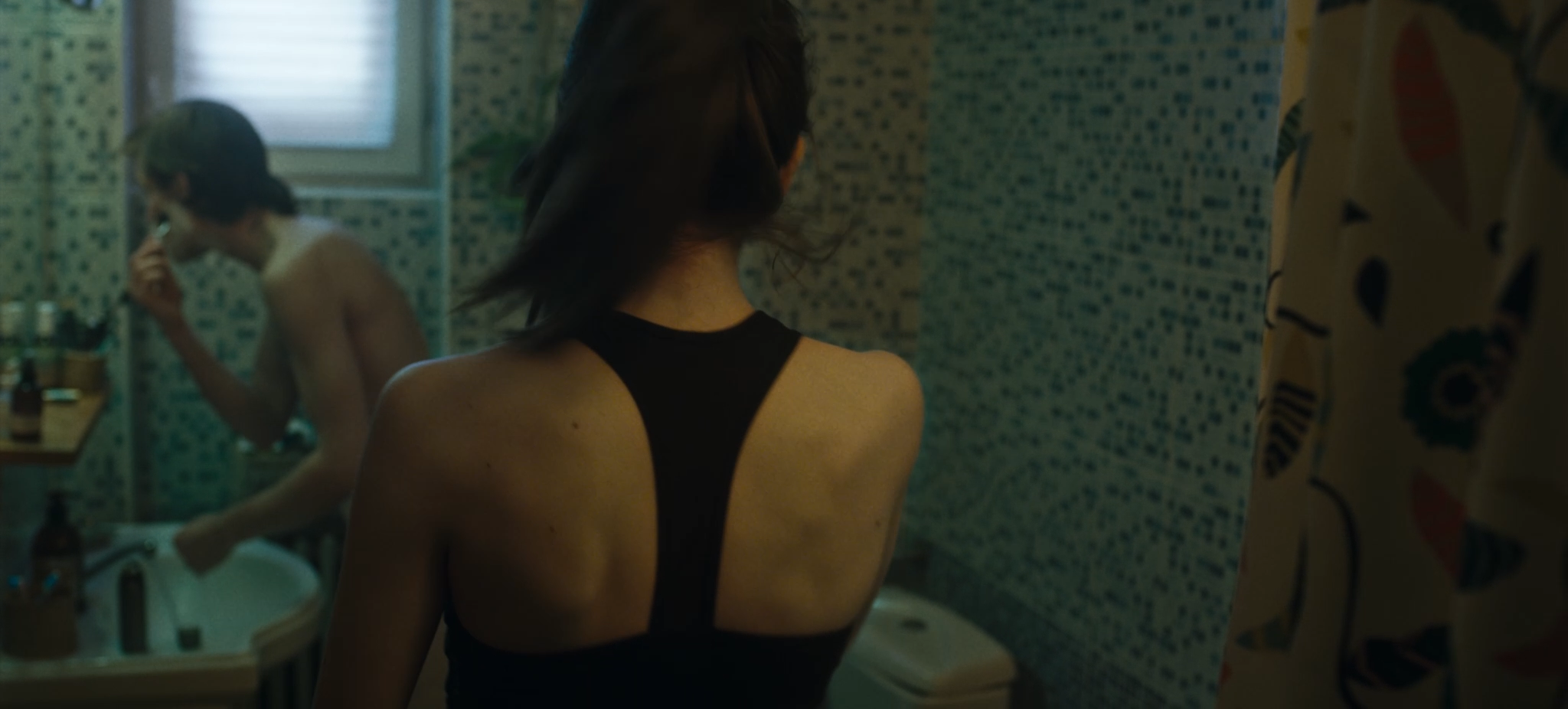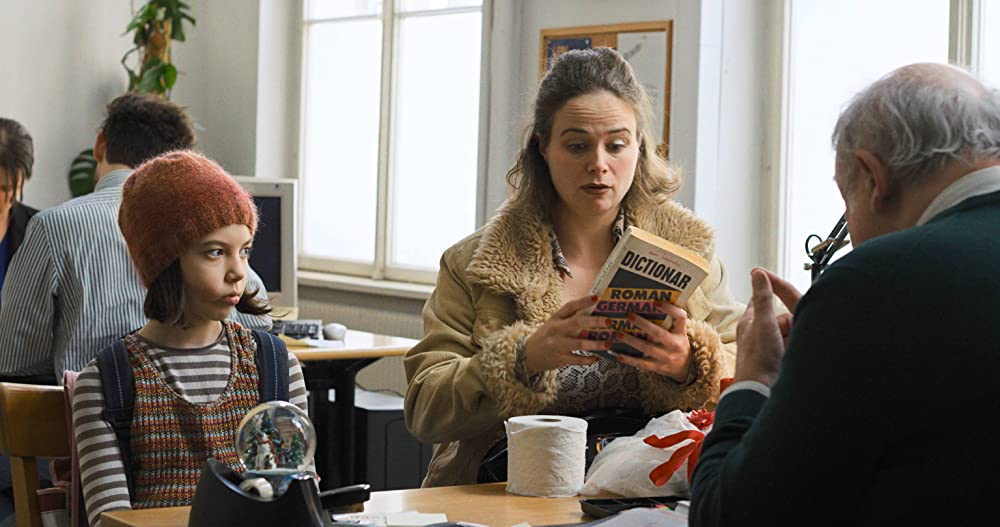Kammerspiele: Romanian Shorts at Anonimul 19
The 19th edition of the Anonimul film festival kicks off on Monday, 8 August – so we decided to take a sneak peak at their selection of Romanian shorts. At first glance, we see that this year’s line-up combines both established names and newcomers, both premieres and shorts that have already gone onto the festival circuit, be it in some of the most important European ones (Rotterdam, Quinzaine des Realisateurs, San Sebastián) or at TIFF – so here’s a chance both to discover new titles and also one to catch up on the year’s important short film titles. As my colleague Victor Morozov put it in his festival report last year – “ I have a feeling that the exciting bets are played at the Romanian shorts table, a selection signed by my friend and film critic Ionuț Mareș”; and this is something that I can always agree with: there is no other section of a festival, be it Romanian or international, where I can have a better feel of its vital pulse, where one can discover the breeding ground of tomorrow’s cinematic talents, all the more so now, after two years of the pandendemic, that have deeply affected the production of young cinema.
In fact, small echoes of the pandemic can be felt throughout all of these films, even if it’s not necessarily explicit – many of them are character studies or Kammerspiele, sometimes even shot in open-air (like Radu Jude’s Potemkinists, which Dalesia Cozorici has written about in detail), with few roles, a possible side-effect of the pandemic era, when large gatherings were semi-impossible, especially for small productions. The most visible film of this type is Aurică, A Dog’s Life, the fiction debut of documentary filmmaker Mihai Dragolea (who explains his shift to fiction in a very good interview conducted by Ionuț Mareș), where we the titular protagonist, an (ex-?)convict who hides in a wheat field, only leaving it to loot a villager’s (Iulian Postelnicu, in a brief but memorable appearance) house every few days for food. A film where nothing much unfolds, that leaves the impression of being unfinished – the classical Romanian open ending – whose stakes remain rather unclear, especially from a social point of view. A snapshot that, upon development, comes out over-exposed: Aurică’s identity and motivations (read: survival) are as clear in the last minute of the film as they are in the first.

As for films set in the home, they make up a substantial part of the short film selection at Anonimul. Of course, the apartment has always been somewhat of a favorite topos of Romanian cinema ever since the New Cinema took off, but in the context of the late pandemic, it seems to take on other meanings as well. For example, the emergence of young couples of tenants as lead characters – a recent and significant mutation, in which the apartment becomes a transitional space for twenty-somethings who are exploring their incipient maturity, a fact that is visible in three of the films in the selection. Iulian-Daniel Popa’s When Clouds Grow Towards Each Other, which centers on a couple who have recently split, comes as a surprise: while at first we one might think things will unfold in a dramatic fashion, like In the Aquarium (dir. Tudor Cristian Jurgiu, 2013), here we have a very pragmatic and rational depiction of a break-up, devoid of sentimentality, focused on the material plane – what does it mean to navigate a break-up when a rented apartment is at stake? Who paid for one repair service or another? Who bought x item from IKEA? Who’s gonna talk to the landlord? At the opposite end of the domestic experience (while still featuring stable objects bought from the Swedish furniture store), we have Bogdan Alexandru’s Our House, wherein a queer couple moves in together in an apartment crammed with old furniture; the conflict doesn’t burn, but rather, bursts like a pressure cooker: just like in Several Conversations About a Very Tall Girl (dir. Bogdan Theodor Olteanu), we are treated to a few hours in the life of a queer couple, in which one of the partners is unable to go public with the relationship, while the other is comfortable and open with her sexuality. The last of these three films is also the strangest – Radu Barbu’s The Story of a Wedding Balloon, which focuses on a couple that, in the girl’s words, “got it on a bit too fast” and already has some pretty big problems going (the boy is a depressed pothead, the girl is volatile and idealises suicide, but the biggest problem of them all lies in their bed). It’s still not quite clear to me what Barbu was trying to do here – a midnight freaky, but lacking the visual kink that the genre implies in terms of editing, pacing and chromatics? A portrait of people contrived in their fucked up-ness that they end up coming across as become unrealistic? Its ending, a highly manufactured scene in terms of surrealism and metaphorical meanings related to gender roles, does nothing but to draw an even stronger smokescreen over the film’s intentions.
Intimacy issues are also the focal point of Alexandru Mironescu’s latest short film, Summer Planning – which captures what seem to be the final hours before the divorce of a couple that has a young child, in which any form of communication between husband and wife seems to have broken down beyond repair. Mironescu – perhaps the best dialogue writer among the young Romanian filmmakers who have yet to make their feature film debut – displays more than just his fine, almost acute sensitivity towards life’s most difficult situations, predicaments, but also a great talent when it comes to working with with actors; certainly one of the strongest short films of the year. Another short on family – this time around, an absent one – issues is Miruna Minculescu’s Fragmentations, one of the most widely circulated short films on the local circuit this year. Its script only features female characters, and follows a few hours in the lives of two sisters that are raised by their grandmother, and who become convinced that their parents, who are working abroad, are about to pay them a surprise visit later in the day. A rather repetitive and uneven film – at one point there’s a secondary narrative thread about another girl, who would like to sleep over at the protagonists’ house, but then disappears, leaving things unresolved; in what seems to be a possible reference to the infamous 2019 Caracal murder-kidnapping case. The film’s otherwise realistic aesthetic is interrupted smack in the middle by an inexplicable scene, where the younger sister play-pretends that she’s in a fashion show, which is filmed in slow-motion and set to traditional Romanian music, and it all ends with an anticlimax; in the end, the film brings nothing new to the table in terms of the representation of the children who were left behind by the massive migration of Romanian workers to Western Europe.

At the same time, what I find remarkable is that two of this year’s films approach the issue of Romania’s female economic migrants, which massively exploded after the country’s accession to the European Union, a phenomenon which is observed overseas, rather than back home – and it’s a theme that Romanian fiction has rarely approached, given how massive the scope of the phenomenon is, with a notable exception in Ioana Uricaru’s 2018 debut feature film, Lemonade. It’s also notable that both films – Brigitta Kanyaro’s Stille Post and Tudor Pojoni’s Corri and Willy – avoid using the bleak tone that is commonly used in such films, using both humor and unconventional characters to break away from the usual, flat manners of representing female migrants as “pure” victims. In the first, we have (at long last!) an absolutely unlikeable little girl who sabotages her mother’s (Diana Cavallioti, outstanding) attempt to apply for social housing in Austria, in the latter, we have the figure of a caregiver (Ofelia Popii) who brilliantly ignores the xenophobic, misogynistic and racist invectives hurled at her by the old German man that she taking care of, who seems to be a former Nazi officer. It is also worth pointing out that economic migration to Germany or Austria is much less often mentioned than economic migration to Italy or Spain; both films are stand-outs in Anonimul’s short film competition.
Of course, every selection has its downs – which, in my opinion, are to be found in the two “audience-friendly” films in the festival’s line-up: the first, In the Name of the Father by Vladimir Dembinski, a thriller in the vein of the New Wave, and the second, Large extravaganza, thin bread, spicy sauce, by Andrei Redniciuc. The latter is a new entry of what I would call a major sub-genre of Romanian short cinema: the “boy’s club movie” (some notable examples: Karmasutra, 2018, dir. Cristian Bota, or Humans in Frame, 2017, dir. Tudor Botezatu). A hyper-masculine milieu, featuring the kind of dirty jokes that recall the humor of the early 2000s, and an unsuccessful emulation of early 21st century popular comedies from America (think Dude, Where’s My Car?) – the kind of films whose sole raison d’etre seems to be that it will one day be uploaded to YouTube. In the Name of the Father, on the other hand, gives us yet another Romanian female lead (Diana Cavaliotti) who is tormented by a stifling, zealous patriarch (performed by, who else?, Vlad Ivanov), a new addition to the infinite showcase of terrorized and traumatised women of modern Romanian cinema; its mix between thriller/horror tropes (dramatic lines, ominous off-screen music) and New Wave stylistics (tracking shots, impoverished social environments, etc.) combines nothing but the most simplistic and schematic elements of both genres, in an effort that ultimately fails to create a convincing narrative.
Still, all in all, a very good selection of shorts this year at Anonimul – where I look forward to catching up with the films in its international competition, next week.
* Author’s note: Unfortunately, we were unable to access a copy of Adrian Sitaru’s latest short, THE ART OF DECEPTION, prior to its premiere at Anonimul.
Main image: still from Summer Planning, by Alexandru Mironescu.
Film critic & journalist. Collaborates with local and international outlets, programs a short film festival - BIEFF, does occasional moderating gigs and is working on a PhD thesis about home movies. At Films in Frame, she writes the monthly editorial - The State of Cinema and is the magazine's main festival reporter.


